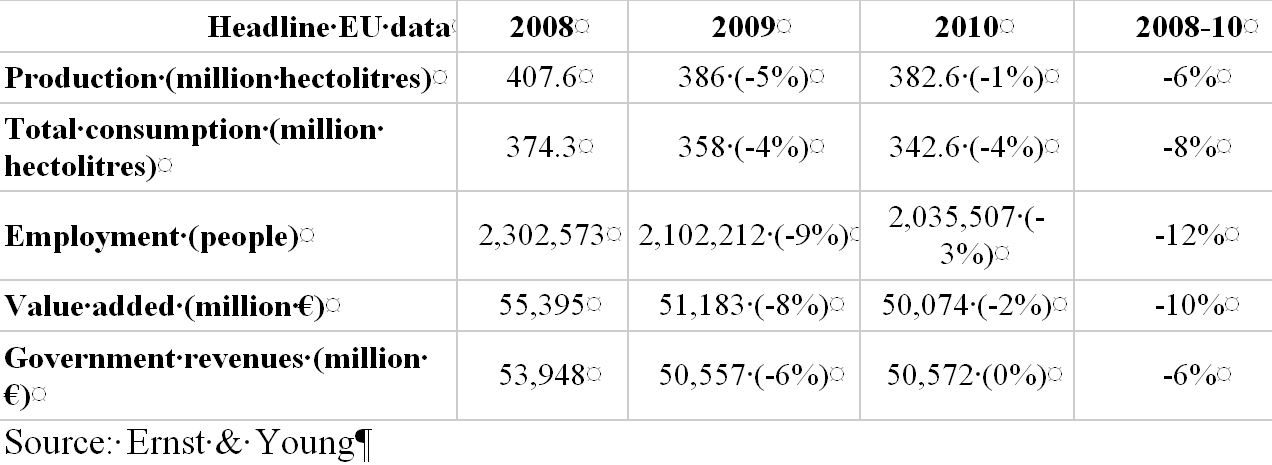It’s a bit like “spot the difference”. And be damned if you cannot. On 19 September 2011 Heineken announced the launch of a new global company visual identity that is supposed to reflect the “significant transformation of the Heineken business over the past decade.”
More than a quarter of a million jobs have been lost in two years as a result of the growing tax burden and impact of the economic crisis on beer, damaging the European economy as a whole.
In Europe grew a very heterogeneous harvest of spring barley this year. Big differences in quality and quantity characterize the year. The supply could be short.
How naive of you to think that pubs are places to enjoy a beer. They are the taxman’s office away from the office and the publicans his assistants. This message was driven home by Tim Martin, who is Chairman of the 823-strong pub group JD Wetherspoon which he founded in 1979.
The news rocked the earth. Schörghuber Group, Heineken’s joint venture partner in Germany, is going to invest in salmon farming in Chile. But what about the new Paulaner brewery project? No further details. In an exclusive with Germany’s leading national daily “Süddeutsche Zeitung” on 13 September 2011, the heiress to the EUR 1.2 billion turnover Schörghuber Group, Alexandra Schörghuber, only reiterated what has been common knowledge for several months: that they will make a decision on whether to build a new Paulaner brewery in Munich before the end of the year.
It’s a worry. The UK is drifting towards continental Europe. At least when it comes to beer consumption patterns. British drinkers are about to consume more beer at home than in pubs for the first time ever. A report from Zolfo Cooper, a financial advisory firm, which was released in August 2011, suggests that the number of trips people were making to the pub has fallen 19 percent in the past year. It said drinkers now visit pubs an average of 4.3 times a month – against 5.3 times a year ago.
Mon dieu. Why do these suits who run the Advertising Standards Authority (ASA) have to be so darn literal? In a recent ruling the ASA slapped Heineken UK on the wrist for saying (or rather implying) in its advertising that Kronenbourg 1664 on sale in the UK is brewed in France.
Ah, the promiscuity of brewers: in bed with each other in one place, in competition in another. What’s wrong with having an open relationship? If it suits the brewers, fine. Who are we to object?
Russia can. And so can Hamburg. Clamp down on alcohol consumption in public places, that is. Arguing that trains and buses are not pubs on wheels, the city’s authorities have ruled that as of 1 September 2011 drinking alcohol on public transport will be illegal. As of 1 October 2011, fines of EUR 40 (USD 58) will be issued to those found wandering around stations and bus stops with as much as an open beer bottle.
After the poor half-year results from the brewers, Diageo’s full-year figures, which it released on 25 August 2011, were a relief to investors. Total sales in the year to June 2011 rose 2 percent to GBP 9.94 billion (EUR 11.2 billion/USD 16.3 billion), with profits overall 5 percent higher at GBP 2.36 billion (EUR 2.7 billion/USD 3.9 billion).




